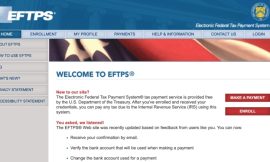If you’re seeking a payroll solution to streamline your organization and provide support to your team, Remote may be just what you’re looking for. With its handy international payroll features, dependable customer support network and beneficial employer-of-record services, Remote can be a promising option for your payroll requirements. But is it the best choice?
Not all payroll software is created equal, and you deserve a solution that can effectively address your specific payroll needs. So read on, as this article will delve into the top alternatives and competitors to Remote in 2023, providing you with a comprehensive overview of the leading payroll solutions — so you can make an informed decision and select the best fit for your organization.
Top Remote competitors and alternatives: Comparison table
Check out the table below for a comprehensive comparison of the software providers discussed in this article. We have evaluated whether these solutions have features expected of robust payroll global systems so you can assess how Remote’s competition stacks up.
| Starting price for global payroll | Starting price for global contractor payroll | No. of countries served | Employee self-service portal | ||
|---|---|---|---|---|---|
| Remote | $50/employee/mo. | $29/contractor/mo. | 200+ | Yes | Try Remote |
| Oyster Payroll | $599/mo. paid monthly | $29/contractor/mo. | 130+ | Yes | Try Oyster |
| Multiplier | Custom quote | $40/mo. | 150+ | No | Try Multiplier |
| ADP GlobalView | Custom quote | Custom quote | 40 (or up to 140 when combined with ADP Celergo) | Yes | Try ADP |
| Deel | Custom quote | $49/mo. | 100+ | No | Try Deel |
| Rippling | $8/user/mo. | $8/user/mo. | 50+ | Yes | Try Rippling |
| Gusto | $699/employee/mo. | Custom quote | 120+ | Yes | Try Gusto |
| Papaya Global | $25/employee/mo.* | $30/contractor/mo. | 160+ | Yes | Try Papaya |
Pricing and plan information up to date as of 2/23/2024.
*Starting price for businesses with 101+ global employees. Price decreases to $20/employee with 501+ employees and $15/employee with 1,001+ employees.
Top Remote competitors
Oyster: Best for global talent sourcing

Although it’s marketed as an HR solution, Oyster’s model offers many helpful payroll features for teams. Oyster is an international payroll provider and stands out with its exceptional global employment tools, which are designed to streamline international staff onboarding and payroll management.
Oyster goes beyond payroll services by simplifying the process of global talent sourcing through comprehensive employee management for international hiring. Its features enable employers to ensure compliance with hiring and payroll requirements, consolidating onboarding paperwork and communication within a single platform.
Pricing
Oyster HR offers payroll services through three price plans:
- Contractor: Starts at $29 per contractor per month, with the first 30 days free.
- Employee: Starts at $599 per employee per month when billed monthly, or $499 per employee per month when billed annually.
- Scale: Custom pricing, with seat-based annual package.
Features
- Contractor vs. full-time employee analyzer tool.
- Employee misclassification analyzer.
- Global employment cost calculator.
- Remote work regulations guide.
- Time zone crossover calculator.
Pros and cons
| Pros | Cons |
|---|---|
|
|
For more information, read our full Oyster review.
Multiplier: Best for international compliance

Multiplier is an all-in-one platform that simplifies international payroll management for employers, covering areas such as taxes, social contributions and local insurance policies. It helps organizations maintain compliance with local laws by providing employment contracts, and it offers a reliable and secure solution for onboarding, payment and benefits provisions to global teams.
The platform offers businesses a safer way to generate multilingual compliant contracts and provide internationally recognized local benefits. This way, employers can support their workforce with localized coverage, pensions and social contributions that align with local corporate and tax laws. Employers can even rely on on-site legal and tax experts to create compliant contracts and mitigate risks when onboarding globally.
Pricing
Multiplier offers payroll services through three price plans:
- Employee of Record: Starts from $400 per month.
- Independent Contractors: Starts from $40 per month.
- Global Payroll: Custom pricing.
Multiplier also offers an Immigration plan at a customized cost.
Features
- Expense management tools.
- Timesheet tracking.
- Leave management capabilities.
- Robust data protection policies.
- Multi-currency payments.
Pros and cons
| Pros | Cons |
|---|---|
|
|
For more information, read our full Multiplier review.
ADP GlobalView Payroll: Best for large multinational teams

ADP’s GlobalView Payroll platform simplifies the management of global payroll by helping businesses consolidate their real-time employee data worldwide. This cloud-based global payroll solution centralizes multiple country payrolls onto a single platform and standardizes workflows for efficient international payroll processing. It also adapts to local payroll regulations, ensuring compliant payroll processing.
ADP GlobalView Payroll is best for larger multinational corporations, as it caters to organizations with a minimum of 500 employees within a single country. For enterprises with up to 1,000 employees across at least three countries, ADP offers an enterprise-level global payroll solution. But if your operations extend beyond the 40 countries covered by GlobalView Payroll, businesses can supplement their plan with ADP Celergo.
Pricing
Pricing for the software is unavailable online, as ADP provides custom quotes based on a company’s payroll needs.
Features
- Global payroll tools.
- Compliance features.
- Global reporting and analytics capabilities.
- Employee self-service portal.
- Integration with popular third-party HCM solutions.
Pros and cons
| Pros | Cons |
|---|---|
|
|
For more information, read our full ADP review.
Deel: Best for global workforce management

Deel provides a suite of features designed to simplify the hiring and payment processes for both local employees and international workers. By leveraging Deel’s global infrastructure, employers gain access to a diverse talent pool, allowing them to hire contractors and employees without establishing legal entities. Through Deel’s Employer of Record product, businesses can seamlessly integrate these employees into their workforce.
With Deel, businesses can easily handle tasks such as equity management, working visas and equipment distribution. The platform also facilitates streamlined payment processing through its automated payroll features, and its system enables faster onboarding and provides a comprehensive view of employer costs, headcount and turnover data.
Pricing
Deel’s payroll services are provided through three pricing plans:
- Contractors: Starts at $49 per month.
- EOR: Starts at $599 per month.
- Global Payroll: Custom pricing.
Deel also offers Deel HR, which is a free global solution for up to 200 employees that automates the HR admin and reporting processes. And its Immigration plan manages immigration and sponsor visas in 30+ countries at a tailored cost.
Features
- Global onboarding tools.
- Payroll with 150 available currencies.
- Time off and expense features.
- Compliance support for terminations.
- Automated contractor invoicing.
- Localized agreements for milestone, hourly or fixed work structures.
Pros and cons
| Pros | Cons |
|---|---|
|
|
For more information, read our full Deel review.
Rippling: Best intuitive AI

Rippling offers comprehensive payroll software that empowers businesses to effectively manage their global workforces. With its advanced global payroll management technology, organizations can seamlessly hire talent from anywhere, efficiently handle payroll and HR processes and even generate comprehensive employee data reports within a unified system.
Utilizing automation and synchronized data for payroll operations, Rippling enables organizations to develop custom workflows that keep their teams on track. For example, automated notifications keep staff members informed about payroll adjustments, and the platform automatically categorizes and syncs payroll and finance data with general ledgers for fast and easy reconciliation.
Pricing
Rippling starts at $8 per user per month, but it provides custom quotes based on your needs — so it’s likely you’ll pay more for your particular service.
Features
- Global payment in local currencies.
- International minimum wage enforcement.
- Overtime and leave enforcement.
- Dedicated mobile app.
- Automatic tax filing.
Pros and cons
| Pros | Cons |
|---|---|
|
|
For more information, read our full Rippling review.
Gusto: Best for international contractors

Gusto is a widely recognized payroll provider that offers an extensive range of features for hiring and paying international contractors across multiple countries. The comprehensive, cloud-based payroll software enables businesses to efficiently run unlimited payrolls, process contractor payments in multiple countries, and manage payroll for employees across all 50 U.S. states.
Gusto supports payroll processing for international contractors through integrated time tracking, automated tax filing and streamlined management of factors like health insurance, 401(k)s, workers’ compensation and paid time off. Gusto also provides customizable onboarding checklists and self-onboarding features, allowing for quick and efficient job commencement. And the solution’s multilingual operations and mobile time tracking and geolocation tools ensure effective management of remote international contractors.
Pricing
Gusto isn’t as focused on global payroll as other titles on this list, but it does offer add-ons for its three main payroll plans:
- Simple: Starts at $40 per month plus $6 per month per employee.
- Plus: Starts at $80 per month, plus $12 per month per employee.
- Premium: Custom pricing.
Depending on your needs, there are two global payroll add-ons:
- Gusto Global: Starts at $699 per month per employee.
- International contractor payments: Price varies by contractor location.
Features
- Full-service, single-state payroll processing, including W-2s and 1099s (with full-service multi-state payroll capabilities also provided in higher-tier plans).
- Gusto-brokered health insurance administration.
- Employee financial benefits, including 401(k) retirement plans, workers’ comp and free financial tools.
- Payroll and time-off reporting and insights.
Pros and cons
| Pros | Cons |
|---|---|
|
|
For more information, read our full Gusto review.
Papaya Global: Best for data leveraging

Papaya Global offers a unified system that synchronizes payroll information and features, providing valuable insights from payroll data. The software plans also include AI-based automation tools to streamline payroll and compliance processes, ensuring efficiency and accuracy throughout the organization.
Papaya Global’s software stands out thanks to its reporting and analytics tools that empower organizational leaders to make informed decisions based on payroll and HR data. The solution includes a comprehensive BI analytics suite and generates people reports on key datasets such as payroll costs and HR workforce data. It also offers real-time data monitoring, enabling organizations to identify crucial trends instantly.
These reporting and analytics tools enable leaders to track their organizational payroll and HR data in real time, facilitating faster analysis and actionable insights. Papaya Global’s system even supports data integration with popular HR systems like BambooHR, ensuring seamless data syncing for more precise reporting.
Pricing
Papaya Global provides its main international payroll services through three plans:
- Grow Global: Starts at $25 per employee per month for 101 to 500 employees.
- Scale Global: Starts at $20 per employee per month for 501 to 1,000 employees.
- Enterprise Global: Starts at $15 per employee per month for 1,001+ employees.
However, you can get opt to get EOR services or a contractor-only plan instead:
- Enterprise Grade EOR: Starts at $650 per employee per month.
- Contractor Payments & Management: Starts at $30 per contractor per month.
Features
- Automated direct payments in local currency.
- Reporting for payroll, HR, payments, billing and admin data.
- Precision engine to ensure compliance with international regulations and requirements.
- Multi-language support.
- Payments within 72 hours through in-house payments solution.
- Customized approval chains and user permissions.
Pros and cons
| Pros | Cons |
|---|---|
|
|
For more information, read our full Papaya Global review.
Is Remote worth it?
There’s a lot of competition out there, but Remote does have its own stand-out features that may make it worth the purchase for your organization. Serving as an employer of record, Remote enables businesses to streamline global payroll for their distributed teams.
If your organization seeks to engage international workers, Remote can support hiring and help manage payments for contractors. And Remote’s software encompasses a range of other functionalities designed to effectively manage payroll compliance operations, taxes, and benefits processes for distributed workforces.
Remote also provides distinctive features that set it apart, such as personalized employment contracts and specific safeguards for employers’ intellectual property and invention rights. Users can take advantage of Remote’s employee misclassification risk tool, which ensures the proper provision of employment rights and benefits to international workers. Additionally, its employee cost calculator allows users to accurately determine the total cost of paying international workers, including government-mandated social contributions.
By integrating with applicant tracking systems, payroll software and ATS software systems, Remote can further enhance the functionality of its services. It supports integrations with popular applications like Greenhouse and BambooHR, and with Remote API, it allows organizations to create custom integrations.
Remote pros and cons
| Pros | Cons |
|---|---|
|
|
Remote pricing
Remote’s services are provided through the following pricing plans:
- Global Payroll: $50 per employee per month.
- Employer of Record: Starts at $599 per month.
- Contractor Management: $29 per contractor per month.
- Contractor Management Plus: $99 per contractor per month.
- Remote Talent: Starts at $119 per month.
- HRIS: $0.
Do you need an alternative to Remote?
While Remote is a robust solution with many helpful features and benefits, there are instances where you might need to consider alternatives to this software. One potential reason is if your business has unique or specific requirements that are not adequately addressed by Remote. For example, if accurate time tracking and management of employee hours are crucial for payroll calculations or project management, a software solution with rich time tracking features may be more suitable.
SEE: 10 Best Features Every Payroll Software Should Have
Ultimately, businesses should evaluate their specific needs and requirements to determine whether an alternative software solution would better align with their HR and payroll management goals or provide necessary functionalities that Remote may not fully cater to.
Methodology
This is a technical review using compiled literature researched from relevant databases. The information provided within this article is gathered from vendor websites or based on an aggregate of user feedback to ensure a high-quality review. You can also take a look at our payroll methodology page to see how we evaluate various products for lists like this one.
Source of Article



